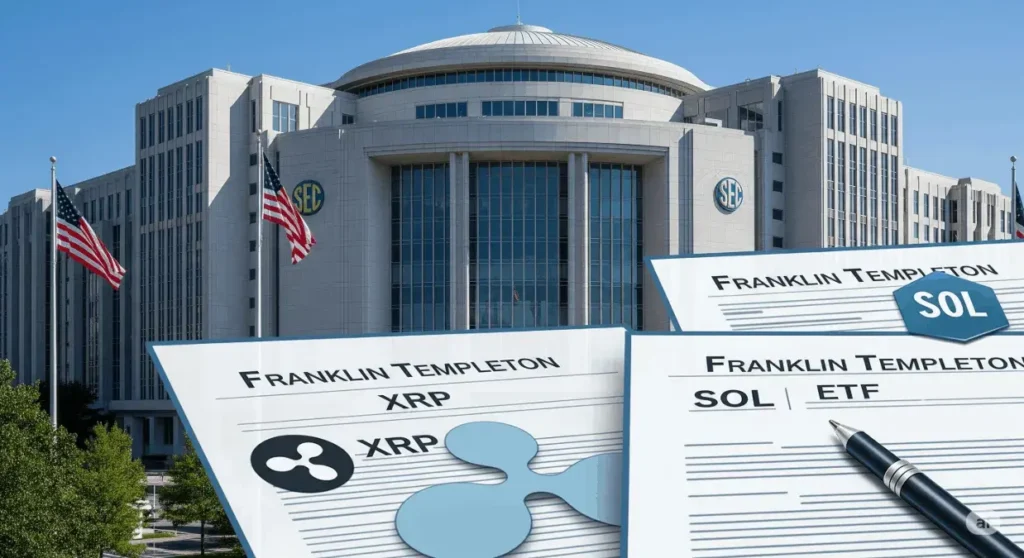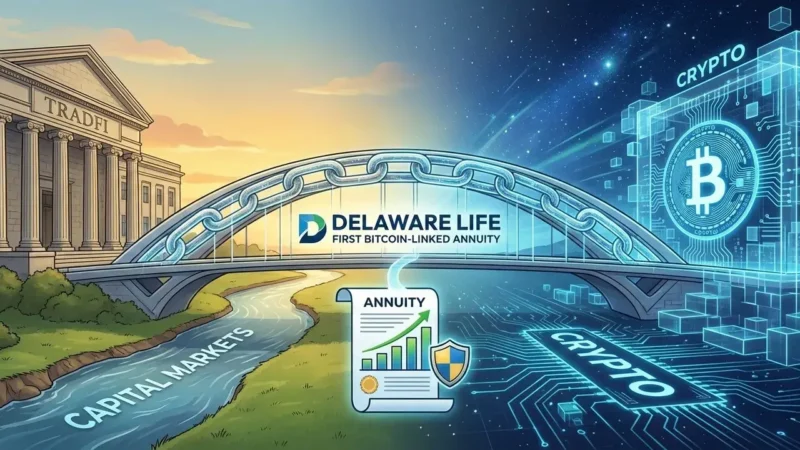SEC Reviews Franklin Templeton XRP and Solana Spot ETFs: A New Era for Crypto?

The cryptocurrency market is abuzz with anticipation as the U.S. Securities and Exchange Commission (SEC) has formally initiated its review of two groundbreaking spot Exchange Traded Funds (ETFs) for XRP and Solana. These proposals, put forth by the prominent asset manager Franklin Templeton, signal a potentially transformative moment for the altcoin landscape, mirroring the impact seen with the approval of spot Bitcoin ETFs. With a decision expected by July 2025, the industry is closely watching how these developments could reshape institutional engagement and market dynamics for these leading digital assets.
The Significance of Spot ETF Approvals
For those unfamiliar, a spot ETF holds the actual underlying asset, providing investors with direct exposure to its price movements without the complexities of direct ownership, such as managing private keys or navigating cryptocurrency exchanges. The approval of spot Bitcoin ETFs earlier this year unleashed a wave of institutional capital into the market, driving up Bitcoin’s price and legitimacy. Many believe that similar approvals for XRP and Solana could trigger a comparable surge in trading volume and price appreciation for these altcoins.
Franklin Templeton, a major player in the crypto ETF space, is at the forefront of this new push. Their move to file for these XRP and Solana ETFs underscores a growing conviction within traditional finance that institutional interest in digital assets will continue its robust expansion. The firm explicitly stated that these filings are a direct response to evident market demand for regulated investment vehicles that bridge the gap between digital assets and traditional financial compliance.
Market Reacts: XRP and Solana on the Radar
Even as the SEC’s review is underway, the market is already showing signs of heightened activity. On-chain data for XRP, in particular, reveals a noticeable uptick in network activity. This indicates that investors are strategically adjusting their positions, keen to preempt any potential positive announcements from the SEC. Such pre-emptive moves are a classic sign of market participants positioning themselves to capitalize on anticipated price swings.
At the time of writing, Solana is trading at $146, boasting a market capitalization of $77 billion. While it has experienced a daily decline in trading volume, its quarterly performance remains strong, with a 10.18% gain over the last three months. XRP, meanwhile, stands at $2.15 per unit, with a market cap exceeding $126 billion. Despite a recent 2.7% daily dip and a 30% drop in volume, its daily activity still tops an impressive $3.3 billion, showcasing its consistent liquidity. These figures, while subject to daily fluctuations, underscore the inherent strength and investor interest in both assets, fueled by the ongoing ETF discussions.
Franklin Templeton’s Strategic Vision
Franklin Templeton’s decision to expand its regulated crypto product offerings is a testament to its forward-thinking strategy within the evolving digital asset landscape. Having already established a significant presence with its Bitcoin ETF, the firm is clearly aiming to diversify its portfolio of crypto-backed investment vehicles. This proactive approach by Franklin Templeton highlights a broader trend: traditional finance is no longer just observing the crypto space; it’s actively seeking to integrate it into mainstream investment avenues.
The firm’s filing for these funds is not merely a speculative bet but a calculated response to what it perceives as an undeniable demand from investors, particularly institutional ones, for compliant and accessible digital asset exposure. Should the SEC grant approval to Franklin Templeton’s applications, it would set a crucial precedent. This could potentially open the floodgates for similar applications for a wider array of altcoins, fundamentally reshaping how these digital assets gain broader market access and achieve mainstream legitimacy. The cascading effect of such approvals could lead to a significant expansion of the crypto ETF market, offering investors an ever-growing suite of regulated options.
Accelerating Institutional Adoption and Regulatory Hurdles
Industry analysts widely concur that the approval of Franklin Templeton’s XRP and Solana ETFs would extend far beyond merely boosting token prices. It would serve as a powerful catalyst, significantly accelerating crypto adoption among institutional managers and traditional investment funds. The existence of regulated, familiar investment products like ETFs provides a comfortable entry point for institutions that may have previously been hesitant due to regulatory uncertainties or operational complexities associated with direct crypto ownership.
However, the path to approval is not without its challenges. Analysts also emphasize that the regulatory environment remains characterized by caution. The SEC’s measured approach, as seen in the prolonged review periods for various crypto-related products, reflects its commitment to investor protection and market integrity. A key challenge remains the establishment of consistent and comprehensive industry standards, which is crucial for fostering a robust and secure digital asset ecosystem. The SEC’s public comment period for Franklin Templeton’s proposals is a vital part of this process, allowing various stakeholders to voice their perspectives and concerns, which will inform the final decision.
The ongoing dialogue between regulators and the crypto industry is essential for navigating these complexities. While delays can be frustrating for market participants eager for quicker resolutions, they also signify a thorough evaluation process aimed at ensuring the stability and security of these nascent financial products. The ultimate decision on Franklin Templeton’s XRP and Solana ETFs will not only impact the trajectory of these specific cryptocurrencies but will also serve as a barometer for the broader regulatory stance on altcoin ETFs in the United States.
The Road Ahead: What to Watch For
As the July 2025 deadline approaches for Franklin Templeton’s XRP and Solana ETF decisions, market participants will be keenly observing several key factors:
- Public Comment Period: The nature and volume of public comments submitted to the SEC will provide insights into broader market sentiment and potential concerns. Strong support or significant opposition could influence the SEC’s deliberations.
- Regulatory Precedent: Any guidance or statements issued by the SEC during this review period will be scrutinized for clues about their evolving stance on altcoins and their classification as securities or commodities.
- Market Performance of XRP and Solana: Continued strong performance and network activity for XRP and Solana could further bolster their case for ETF approval, demonstrating mature and liquid markets.
- Legal Developments: For XRP, the ongoing legal landscape surrounding Ripple and the SEC’s case remains a significant backdrop. Any clarity or resolution in this area could positively influence the SEC’s decision-making process regarding an XRP spot ETF.
The journey towards wider institutional adoption of cryptocurrencies is a marathon, not a sprint. The efforts of firms like Franklin Templeton are instrumental in building the necessary bridges between traditional finance and the innovative world of digital assets. While the immediate future for XRP and Solana hinges on the SEC’s verdict, the very fact that these discussions are taking place at such a high level underscores the growing maturity and undeniable presence of cryptocurrencies in the global financial landscape. The outcome of Franklin Templeton’s ETF applications will undoubtedly be a pivotal moment for these altcoins and the broader crypto market.
Stay informed, read the latest crypto news in real time!
Conclusion
The SEC’s review of Franklin Templeton’s proposed spot ETFs for XRP and Solana marks a significant milestone in the mainstreaming of cryptocurrencies. As the crypto market matures, the demand for regulated and accessible investment products continues to grow. The potential approval of these ETFs could unlock substantial institutional capital, replicate the success seen with Bitcoin ETFs, and pave the way for even greater diversification in crypto investment offerings. While regulatory caution remains a defining characteristic of this evolving space, the proactive stance of firms like Franklin Templeton signals a clear trajectory towards a future where digital assets are an integral part of global investment portfolios. The next few months will be crucial as the crypto community eagerly awaits the SEC’s decision, which promises to shape the contours of institutional crypto adoption for years to come.




